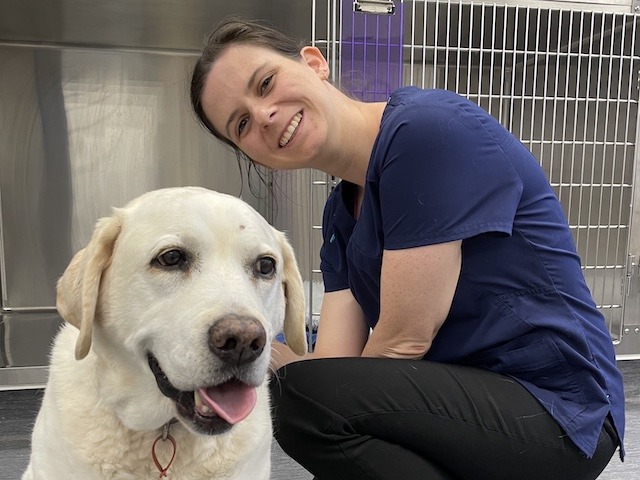Senior dogs with heart disease typically present to the vet with various signs and symptoms, depending on the type and severity of the condition.
Common Signs and Symptoms of Heart Disease in Senior Dogs:
- Coughing:
- Persistent cough, often worse at night or after exercise.
- Difficulty Breathing:
- Labored or rapid breathing, panting, and shortness of breath.
- Exercise Intolerance:
- Reduced stamina, tiring easily, and reluctance to exercise.
- Weakness and Fatigue:
- General lethargy, weakness, and decreased energy levels.
- Fainting or Collapsing:
- Episodes of fainting (syncope) or collapsing, often triggered by excitement or exertion.
- Swollen Abdomen:
- Abdominal distension due to fluid accumulation (ascites).
- Weight Loss or Gain:
- Unexplained weight loss or gain, especially if fluid retention is involved.
- Blue or Gray Gums and Tongue:
- Cyanosis, indicating poor oxygenation of the blood.
Treatments for Heart Disease in Dogs:
- Medications:
- Diuretics: To reduce fluid buildup in the lungs and abdomen (e.g., furosemide).
- ACE Inhibitors: To relax blood vessels, reduce blood pressure, and decrease the workload on the heart (e.g., enalapril, benazepril).
- Beta-Blockers: To slow the heart rate and reduce the heart’s workload (e.g., atenolol).
- Pimobendan: A positive inotrope and vasodilator that improves heart function and blood flow.
- Antiarrhythmics: To manage abnormal heart rhythms (e.g., sotalol, digoxin).
- Dietary Management:
- Low-Sodium Diets: To help control fluid retention and reduce the heart’s workload.
- Weight Management: Maintaining an ideal weight to reduce stress on the heart.
- Lifestyle Modifications:
- Moderate Exercise: Controlled and gentle exercise to maintain muscle mass and overall health without overexerting the heart.
- Stress Reduction: Minimizing stress and excitement to prevent exacerbating symptoms.
- Regular Monitoring:
- Veterinary Check-Ups: Frequent visits to monitor heart function and adjust treatments as needed.
- Diagnostic Tests: Regular echocardiograms, chest X-rays, and blood tests to track disease progression and treatment efficacy.
- Supplemental Therapies:
- Nutritional Supplements: Omega-3 fatty acids and antioxidants to support heart health.
- Oxygen Therapy: For dogs with severe respiratory distress, to ensure adequate oxygenation.
Preventive and Supportive Care:
- Early detection through regular veterinary exams, especially in breeds predisposed to heart disease.
- Managing underlying conditions such as obesity, high blood pressure, and thyroid disorders.
- Providing a calm and supportive environment to help manage symptoms and improve quality of life.
Early diagnosis and a comprehensive, individualized treatment plan are crucial for managing heart disease in senior dogs, helping to alleviate symptoms and improve their quality of life.
Book a consultation in one of our Geelong Veterinary clinics today.
